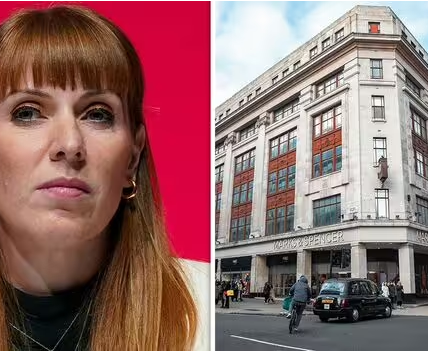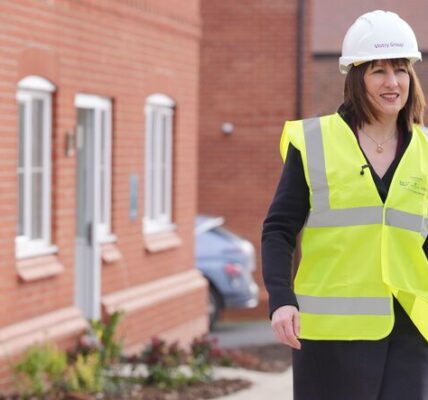The Chancellor has published her spending review, but the economy is in trouble. So should she be removed from her post?

Rachel Reeves unveiled her Spending Review on Wednesday (Image: Getty)
Chancellor Rachel Reeves said she was “investing in Britain’s renewal” when she set out spending plans for the next five years but she suffered a huge blow today as official figures showed the economy is going backwards. Gross domestic product (GDP) fell by 0.3% in April – the biggest contraction since October 2023.
There is speculation that Ms Reeves could be sacked in a reshuffle or even choose to quit before she delivers her Budget statement in October, when she will set out plans for taxes and benefits.
Bookmakers William Hill say the odds are shortening on Labour veteran Pat McFadden, currently Chancellor of the Duchy of Lancaster, being called in to take over.
William Hill spokesperson, Lee Phelps, said: “Just as Rachel Reeves prepares to make her latest spending plans announcement, Pat McFadden has shortened in the betting to replace her. McFadden has been cut from 5/2 to 2/1 to be the next Chancellor of the Exchequer, making him the firm market favourite and reflecting growing speculation around Reeves’ future in the role.”
Business leaders say the Chancellor’s decision to increase National Insurance contributions paid by employers has damaged confidence, making firms less likely to invest or employ more staff.
Responding to the latest GDP data, Stuart Morrison, Research Manager at the British Chambers of Commerce said: “With 0.7% growth in the 3 months to April, the UK economy enjoyed a strong start to the year as firms increased trade ahead of the volatility of tariff announcements.
“However, a larger than expected fall in GDP for April suggests the UK is now turning more squarely into headwinds.
“The UK’s partial trade deal with the US has offered some relief, but the lowering of tariffs on steel, aluminium and automotives is not yet fully assured.
“This continued uncertainty will inevitably hamper firms’ investment decisions and long-term growth prospects. Our research also shows 82% of firms think the National Insurance rise will impact their operations – hitting investment, recruitment and prices.”
The Office for National Statistics (ONS) said output in Britain’s manufacturing sector dropped by 0.6% in April, having surged earlier in the year as US importers stocked up ahead of Mr Trump’s tariff rises, which came into effect at the start of April.
Exports to America fell at the fastest pace on record, down £2 billion in April – led by machinery and transport, including cars, according to separate trade figures from the ONS on Thursday.
ONS director of economic statistics Liz McKeown said: “After increasing for each of the four preceding months, April saw the largest monthly fall on record in goods exports to the US with decreases seen across most types of goods, following the recent introduction of tariffs.”
The wider economy also shrank as the all-important services sector saw activity fall by by 0.4% in April.
The ONS said this was largely pulled lower by a drop off in demand in the housing market following the rush to complete property deals ahead of the stamp duty change from April 1.
Chancellor Rachel Reeves acknowledged that the latest GDP figures were “clearly disappointing”, but insisted her spending review would help deliver growth.
She said: “Our number one mission is delivering growth to put more money in people’s pockets through our plan for change, and while these numbers are clearly disappointing, I’m determined to deliver on that mission.”
The fall in GDP also comes after soaring wage cost pressures from April, with the increase in national insurance contributions (NICs) and the minimum wage both taking effect at the start of the month, which has hit the service sector particularly hard.


